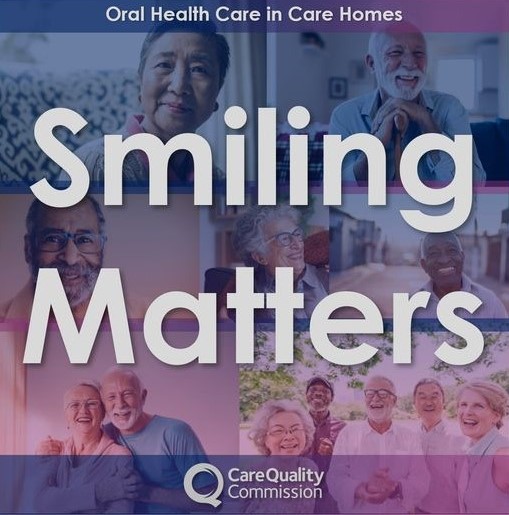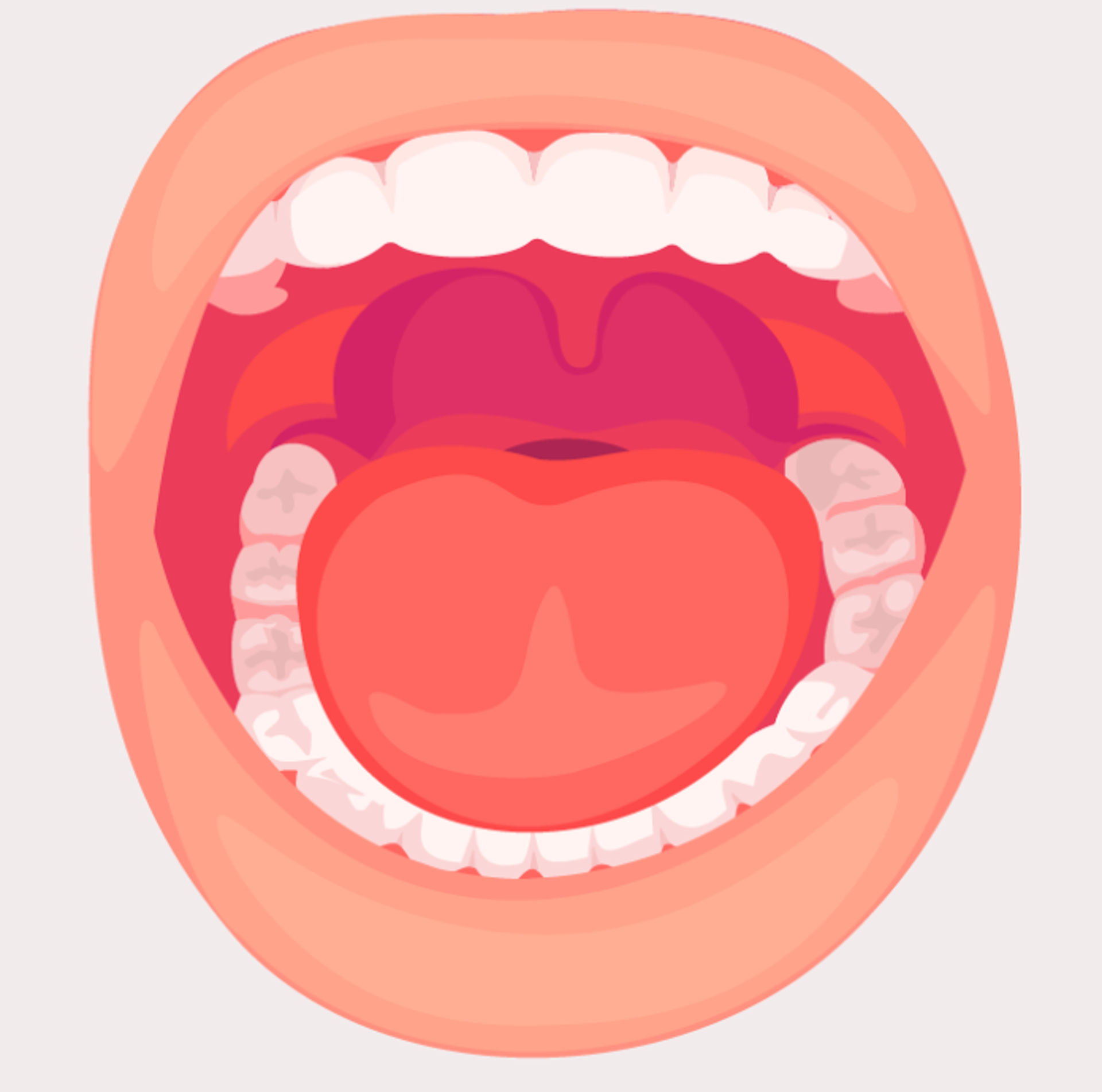Smiling Matters
The push to promote oral hygiene

Published: 31/03/2023
CQC recently released a Smiling Matters progress report which focuses on the condition of oral hygiene in care homes, examining the extent to which guidelines are being implemented by dental providers and care homes since 2019.
The original report, back in 2019, concluded that residents were not supported to maintain their oral health; stating that of 100 homes inspected 73% of care plans were only partly or did not cover oral health. Following on from the original report where not everyone was being supported to keep their teeth or dentures clean, CQC have now seen an improvement having concluded their inspection. The Smiling Matters Progress Report state that there is an increase in managers awareness of oral health guidance and staff training had now doubled.
Understanding the importance of promoting and maintaining good oral hygiene helps us when caring for those who need support. Teeth and dentures can easily be forgotten about and therefore if oral healthcare is not assessed it means that mouth care needs can be missed.

Teeth and the mouth help us to chat, smile, socialise, and enjoy our favourite foods.
Oral health not only enhances people's quality of life, but it is vital to making sure we can eat, drink, take medication, communicate and stay healthy- gum disease may cause an increased risk of stroke or diabetes and has a link to heart disease.
Oral health covers:
- Teeth and gums
- The hard and soft palate
- The soft tissues of the mouth and throat
- Tongue
- Lips
- Salivary glands
- Chewing muscles
- Upper and lower jaws
Maintaining good oral health and attending routine dental check ups can reduce problems and the associated costs in the long term, identify if those you are supporting are experiencing any pain and act on it quickly.
Other things to look out for:
- Dryness- a dry mouth can lead to tooth decay and gum disease as saliva helps wash away food and reduce plaque.
- Redness – red and white patches should be checked quickly, if left untreated it can lead to cancer. It could also be a sign of thrush within the mouth. Oral thrush can develop with the usage of dentures, inhalers and chemotherapy. Ensure dentures are not worn overnight and ensure the mouth in rinsed after taking medication.
- Bleeding or swollen gums- this can be a sign of gum disease, bacteria and other health conditions
- Ulceration or other sores- ulcers can occur from badly fitting dentures, but also can occur from hormonal changes and smoking
- Infections such as abscesses and tooth decay
A healthy mouth
The mouth and lips should be kept clean and moist. After brushing apply a suitable lip balm to dry lips. To prevent dryness it is important to keep hydrated, regular small sips throughout the day will suffice if 8 glasses cannot be managed. Between meals we should all be trying to reduce our intake of sugary foods and drinks.
Brush twice a day for 2 full minutes with a high fluoride toothpaste, 3 in 10 people are brushing just once a day. Use a soft toothbrush on gums and teeth- brush at a 45 degree angle against the gumline and try to encourage spitting out excess toothpaste after brushing and not rinsing. Mouthwash with fluoride ingredient is a useful tool to prevent tooth decay, however leave it 30 minutes before eating or drinking.
Brushing technique:
- Start with the outer and inner surfaces. Don’t forget the back teeth!
- Next, brush chewing surfaces back and forth with a flat brush
- Tilting vertically, brush the inside surfaces of the front teeth using gentle up and down strokes
- Then brush along the gum line
- Finally, brush the tongue to remove food particles, remove bacteria and freshen the breath
Floss once a day, there are various ways such as interdental brushes or dental floss. This video shows you the most effective technique: Flossing your teeth - YouTube
Don't Forget!
Tooth brushes should be replaced after every 3 months or when it begins to show wear. Don’t forget to replace it after illnesses such and cold, flu and covid as the bristles can collect those germs and cause reinfection.
Keeping dentures clean
For dentures, they should be removed and cleaned separately; remove them overnight and soak them in a suitable cleaning solution, this is a good opportunity to check them for any signs of wear such as sharp edges. In the morning rinse them thoroughly before putting them back in. They should be brushed at least once a day and rinsed after every meal.
Dentures should be disinfected once a week unless there is an infection, in which case may need to be done more regularly.

As recommended by Fixodent to make it easier to remove your dentures, gargling with warm water helps to loosen the adhesive.
Once your dentures are removed rinse them with lukewarm water to remove any particles before brushing them. Avoid any highly abrasive toothpaste, opt for denture paste or a a low-abrasive toothpaste instead.
To remove adhesive residue from inside your mouth, use a clean wash cloth to wipe along gums and the roof of your mouth. Then rinse out your mouth with warm water.
Don't Forget!
Even if someone doesn’t have teeth it is important to still brush as it keeps their mouth clean. The gum ridges or where their teeth used to be should still be brushed. Also brush the tongue gently with the a soft toothbrush. This all still prevents infections!
Take a look at these advice and support pages for further inspiration:
Take care of your teeth and gums NHS
Helping someone with mouth care
Mouth care for people with dementia
Our team of caregivers receive comprehensive training prior to their employment. Would you like to join our caring team?
